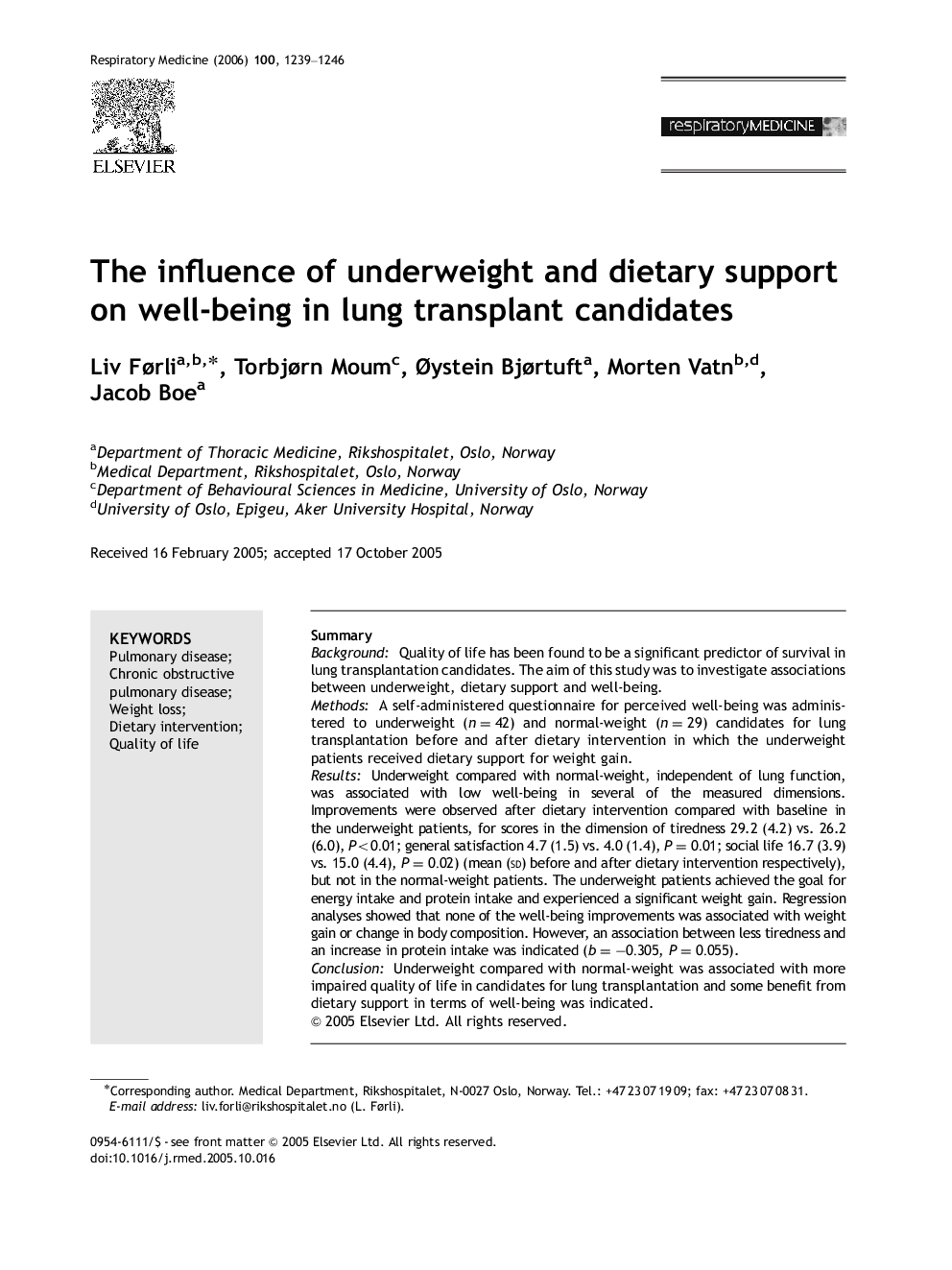| Article ID | Journal | Published Year | Pages | File Type |
|---|---|---|---|---|
| 4212486 | Respiratory Medicine | 2006 | 8 Pages |
SummaryBackgroundQuality of life has been found to be a significant predictor of survival in lung transplantation candidates. The aim of this study was to investigate associations between underweight, dietary support and well-being.MethodsA self-administered questionnaire for perceived well-being was administered to underweight (n=42n=42) and normal-weight (n=29n=29) candidates for lung transplantation before and after dietary intervention in which the underweight patients received dietary support for weight gain.ResultsUnderweight compared with normal-weight, independent of lung function, was associated with low well-being in several of the measured dimensions. Improvements were observed after dietary intervention compared with baseline in the underweight patients, for scores in the dimension of tiredness 29.2 (4.2) vs. 26.2 (6.0), P<0.01P<0.01; general satisfaction 4.7 (1.5) vs. 4.0 (1.4), P=0.01P=0.01; social life 16.7 (3.9) vs. 15.0 (4.4), P=0.02P=0.02) (mean (sd) before and after dietary intervention respectively), but not in the normal-weight patients. The underweight patients achieved the goal for energy intake and protein intake and experienced a significant weight gain. Regression analyses showed that none of the well-being improvements was associated with weight gain or change in body composition. However, an association between less tiredness and an increase in protein intake was indicated (b=-0.305b=-0.305, P=0.055P=0.055).ConclusionUnderweight compared with normal-weight was associated with more impaired quality of life in candidates for lung transplantation and some benefit from dietary support in terms of well-being was indicated.
